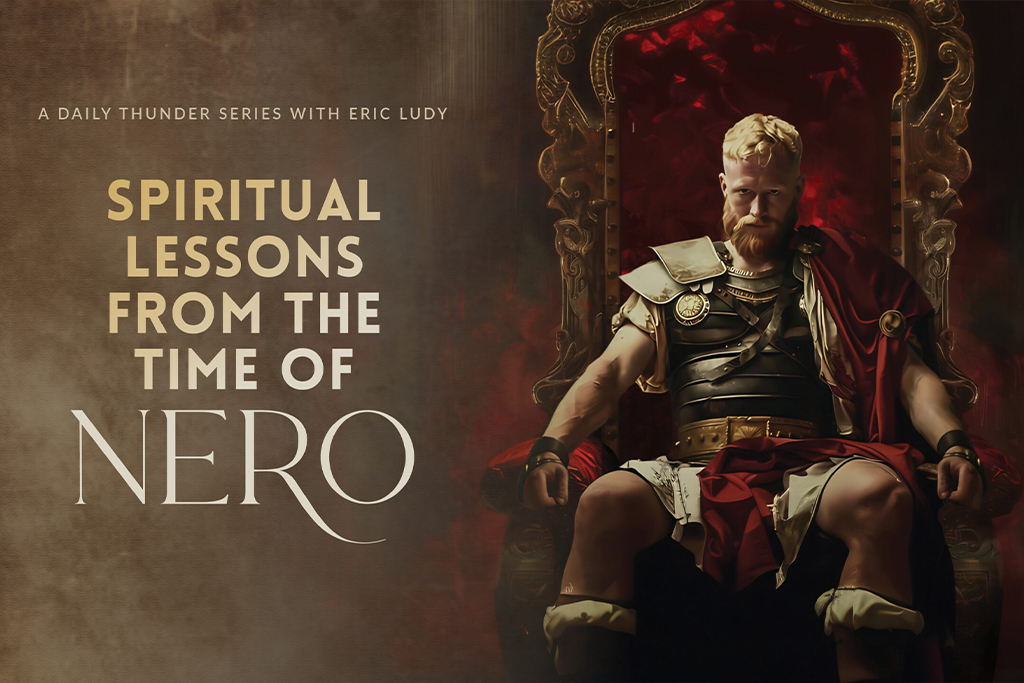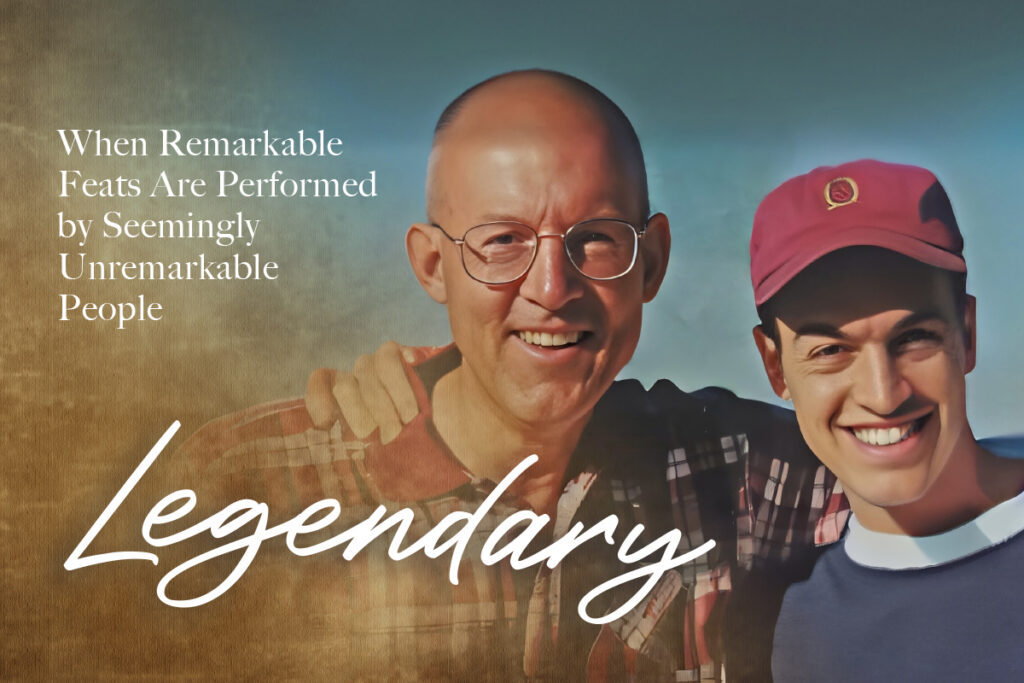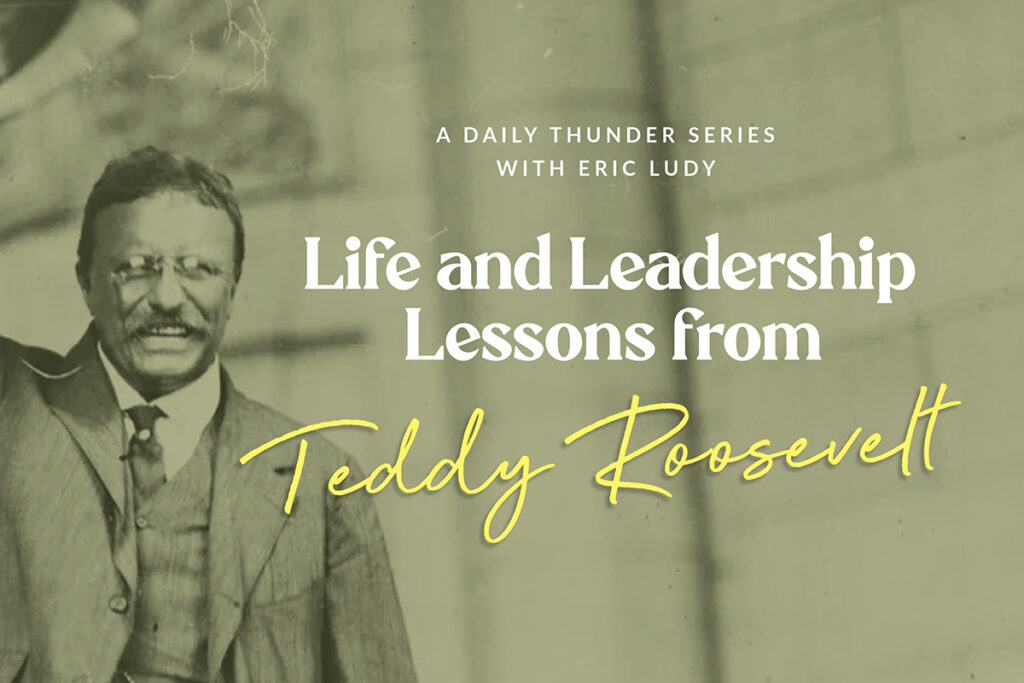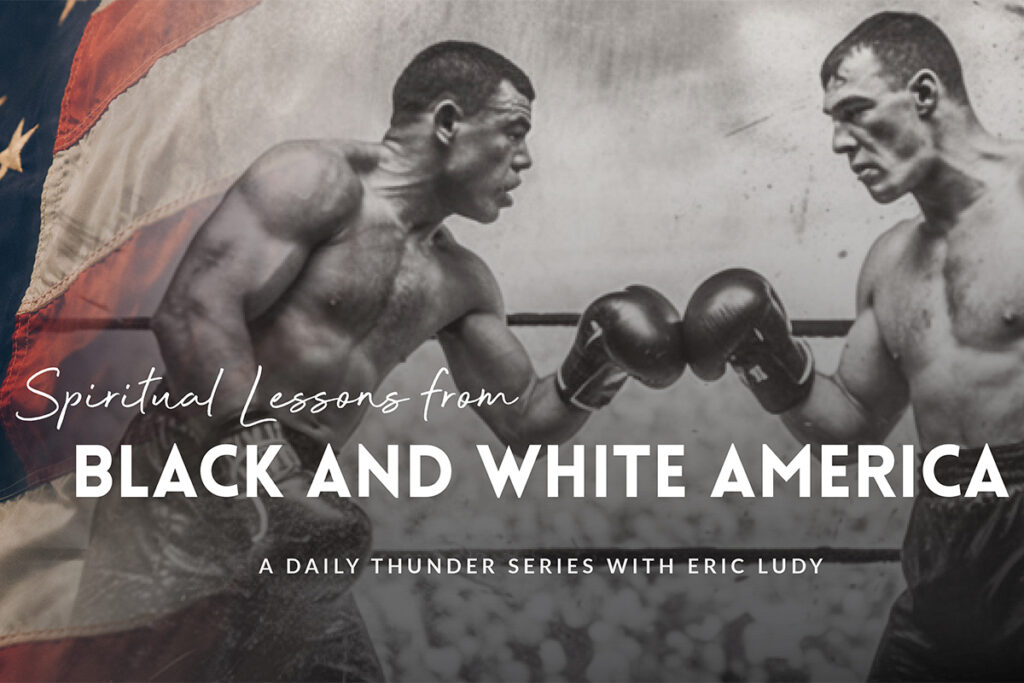
A Daily Thunder Series with Eric Ludy
Win 'em Like Wilberforce
A Series About the Power of Changing the World ... Together
Part 1: Waking William
William Wilberforce is one of those rare men in history that lived life as God intended life to be lived. He boldly acted on behalf of Truth—risking his life, forsaking his comforts, and letting go of his reputation—and, therefore, altered the course of world-history. Many men of antiquity can clearly be deemed culpable for the downward trajectory of nations, but few men in history can actually be pinpointed to have turned their entire culture in the direction of God. William Wilberforce is one of them. Because of Wilberforce, the wicked practice of slavery was completely abolished in England in 1833. This massive work of 48 years can all be traced back to a day in 1785 when William Wilberforce awakened. May the same soul awakening happen within all of us.
Part 2: The Cure for Athlete's Foot
The Body of Christ is uniquely designed as a purging agent of cultural fungus. But to effectively wipe out the demonic ideas and the sinful societal fog of the hour, the Church needs to do its cleansing work in accordance with the Christ pattern. And this involves a two-handed approach to the work of rescue and resuscitation. In other words, both the right and left hands are needed to carry out the job. The head and heart are both essential and mustn’t be disconnected. And truth and mercy must both attend the work and the two must never be estranged. When we emphasize one side over and above the other side, the cultural fungus just laughs at our do-gooder attempts. The secret is found in both hands working in perfect coordination according to the perfect mixture as assigned by the Holy Spirit.
Part 3: It Takes Two to Tango
There are two particular behaviors that are strangely missing in many Christian lifestyle patterns today. The first is sharing the Gospel with the lost. And the second is sharing one’s resources and time with the poor and needy. For many in the Western Christian culture, these behavioral functions (though theologically highly esteemed) have been relegated to an almost mythical fictitious status—as if they are something to intellectually believe are correct but are not practically expected to be implemented in the Christian life. Ironically, these two behavioral functions have been deemed two of the most important throughout Church history and, therefore, getting them back into our behavioral arsenal is of the utmost importance.
Part 4: The Breakthrough of 1806
The Christian life is intended to get stronger and stronger and stronger with time. Unfortunately, this hasn’t been the experience of many believers in the modern era. But that isn’t because it isn’t God’s pattern, it’s because often modern Christians are lacking the key ingredient of persistence in their walk. They give up at the first sign of challenge—they give up when they reach the first obstacle. Ancient Christianity is built on the premise that when you are knocked down you get up, and you keep getting up after every single knock down until finally you breakthrough and knock out your opponent. William Wilberforce is an amazing picture of this indomitable perseverance.
Part 5: Rocky Road, Please
The Christian life is a bit counter-intuitive at first (ie. the least is the greatest, the servant is the leader, and weakness is a place of strength). It takes a bit for the newly budded Christian to grasp such an upside down pattern, but when it’s finally grasped, the path opens up for great spiritual growth and maturity. This message focuses on the arduous year of 1793 in Great Britain—a year of war, famine, and economic instability—and it showcases how difficulty can actually be a good thing—a tremendously beneficial thing when embraced and received with faith.
Part 6: Craving a Clapham
What would it be like if we as the Church of Jesus were to put aside our differences and, instead, cherish our common faith in our amazing Savior? This was Christ’s vision, His passion, His great desire. But, for some reason, we, as His Church, have greatly struggled to make this our vision, passion, and desire. William Wilberforce discovered the beauty of this spiritual unity in his work with the Clapham community back in the early 19th century. And the unity they shared sponsored one of the greatest and most transformative works of grace in the past two thousand years.
Part 7: Ready or Not
Readiness is a vastly underrated quality of the healthy Christian life. But, readiness doesn’t come about accidentally. A believer needs to practice and train in readiness. And if it isn’t practiced, then the believer will be found unready in the moment where alertness, action, and agreement is desperately needed. The quality of readiness is one of the beautiful hallmarks of William Wilberforce’s life. And it is one of the chief reasons why his life impacted the world.
Part 8: Honorable
William Wilberforce was used by God to change the world. Many historians recognize the impact of his life, but fail to see the real reason why his life was so deeply impacting. They see qualities like perseverance, determination, and extraordinary compassion as the catalyst to his greatness. But though those qualities were essential to the make-up of the man, the true power of William Wilberforce goes much deeper than that. Wilberforce was a godly man and that was his great secret. He was a wholly honest and trustworthy person who genuinely loved all people and desired them to be free to live in liberty. The honorable nature of this man still reverberates in and through history two hundred years later.









